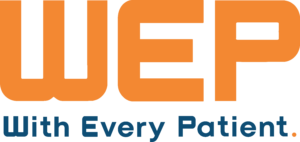6th Expanded Access Programmes World Congress 2024 Europe
Day 2 - Friday 12th April 2024
- Auditorium 1
 Dan Lewi, Head of Business Development and Patient Advocacy , Pulse infoframe Inc., co- founder CATS
Dan Lewi, Head of Business Development and Patient Advocacy , Pulse infoframe Inc., co- founder CATS
Foundation
BREAKING DOWN BARRIERS TO PATIENT ACCESS
- Value of patient engagement in Early Access Programmes
- How important is engaging patient at the earliest stage in research and development
- The need for a continuous meaningful dialogue between stakeholders to establish an effective working relationship
- What are the best practices and ethics behind a successful early access programme?
- Knowing what motivates the stakeholders within early access
- Sustaining purposeful patient engagement across the lifecycle of medicines
 Carole Scrafton, Director & Co-Founder, Flutters and Strutters
Carole Scrafton, Director & Co-Founder, Flutters and Strutters Dr Lorna Pender, Global Patient Engagement Lead, Clinigen Group
Dr Lorna Pender, Global Patient Engagement Lead, Clinigen Group
 Hannah Plowman, Real World Data Specialist, Clinigen Group
Hannah Plowman, Real World Data Specialist, Clinigen Group
- How should societies address a request for a single patient in need when a drug is not being made broadly
available? - Could sponsors or governments ethically say yes to one person and no to others?
- Who should be deciding which patients will live?
 Nora Pöntynen, Global Medical Affairs, Boehringer Ingelheim International GmbH
Nora Pöntynen, Global Medical Affairs, Boehringer Ingelheim International GmbH
- Value of real-world data in EAP
- The use of real-world data for Market access and reimbursement
- Regulatory considerations and country differences for collecting real-word data
- Case studies
 Dr David Gillen, Chief Medical Officer, Norgine
Dr David Gillen, Chief Medical Officer, Norgine
- Different source for gathering data from EAPs
- Inherent collection of patient data
- EAP vs RWE
- Continue to focus providing access
- Optimize contact with HCPs
 Dr. Alberto Calabrò, Patient Access Program and Supply Leader, F. Hoffmann-La Roche Ltd
Dr. Alberto Calabrò, Patient Access Program and Supply Leader, F. Hoffmann-La Roche Ltd
- Why is patient forcasting important in planning early access programmes
- Factors that could influence patient uptake in early access programmes
- Overcoming difficulties that affects patient uptake
 Sara Radenovic, Director, Managed Access, GSK
Sara Radenovic, Director, Managed Access, GSK Ana Tediosi, Head of Expanded Access Strategy, WEP Clinical
Ana Tediosi, Head of Expanded Access Strategy, WEP Clinical
 Robert Donnell, EVP, Medicines Access, Smartway Pharma
Robert Donnell, EVP, Medicines Access, Smartway Pharma
- EAP Essentials for Small Pharma
- Planning and Compliance
- EAP Design Principles
- Vendor Selection Criteria
 Julie Powell, Director, Patient Advocacy and Public Affairs, Pleco Therapeutics
Julie Powell, Director, Patient Advocacy and Public Affairs, Pleco Therapeutics
CHALLENGES AND POTENTIAL OF EAP
- Open Label Trial
- 20 children, 2 rare disease
- Encouraging results lead to off label prescribing
- Inequitable access and reimbursement
- The fight goes on
 Lindsay Randall, Founder, CEO, Mother, Arthur’s Quest
Lindsay Randall, Founder, CEO, Mother, Arthur’s Quest
- National genomic sequencing programme for cancer and rare disease
- Clinical genomic data enhances target selection and validation
- Using genomics to improve efficacy and safety of therapeutic candidates
- Incorporation of genomics into patient selection / enrolment criteria
- Early intervention enablement using genomics
 Dr James Duboff, Strategic Partnerships Director, Genomics England
Dr James Duboff, Strategic Partnerships Director, Genomics England
- What to do if a drug is ultimately not approved for funding
- How can patient families help advance the funding and approval process with HTAs
- What role does world data and observational studies play in supporting the pricing reimbursement decision
- What does one do if the funding process fails.
 Dan Lewi, Head of Business Development and Patient Advocacy , Pulse infoframe Inc., co- founder CATS
Dan Lewi, Head of Business Development and Patient Advocacy , Pulse infoframe Inc., co- founder CATS
Foundation
![]()
 Juliet Hulse, Head of Clinical Operations, Pulse infoframe Inc.
Juliet Hulse, Head of Clinical Operations, Pulse infoframe Inc.




